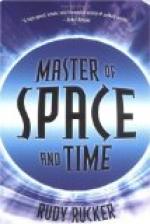The invention of Wheatstone’s which proved to be of greatest lasting importance in connection with the telegraph was the automatic transmitter. By this system the message is first punched in a strip of paper which, when passed through the sending instrument, transmits the message. By this means he was able to send messages at the rate of one hundred words a minute. This automatic transmitter is much used for press telegrams where duplicate messages are to be sent to various points.
The automatic transmitter brought knighthood to its inventor, Wheatstone receiving this honor in 1868. Wheatstone took an active part in the development of the telegraph and the submarine cable up to the time of his death in 1875.
Wheatstone’s telegraph would have served the purposes of humanity and probably have been universally adopted, had not a better one been invented almost before it was established. And it is because Morse, taking up the work where others had left off, was able to invent an instrument which so fully satisfied the requirements of man for so long a period that he is known to all of us as the inventor of the telegraph. And yet, without belittling the part played by Morse, we must recognize the important work accomplished by Sir Charles Wheatstone.
V
THE ACHIEVEMENT OF MORSE
Morse’s Early Life—Artistic
Aspirations—Studies in Paris—His
Paintings—Beginnings
of His Invention—The First Instrument—The
Morse Code—The
First Written Message.
When we consider the youth and immaturity of America in the first half of the nineteenth century, it seems the more remarkable that the honor of making the first great practical application of electricity should have been reserved for an American. With the exception of the isolated work of Franklin, the development of the new science of electrical learning was the work of Europeans. This was natural, for it was Europe which was possessed of the accumulated wealth and learning which are usually attained only by older civilizations. Yet, with all these advantages, electricity remained largely a scientific plaything. It was an American who fully recognized the possibilities of this new force as a servant of man, and who was possessed of the practical genius and the business ability to devise and introduce a thoroughly workable system of rapid and certain communication.
We have seen that Wheatstone was early trained as a musician. Samuel Morse began life as an artist. But while Wheatstone early indicated his lack of interest in music and devoted himself to scientific studies while yet a youth, Morse’s artistic career was of his own choosing, and he devoted himself to it for many years. This explains the fact that Wheatstone attained much scientific success before Morse, though he was eleven years his junior.




